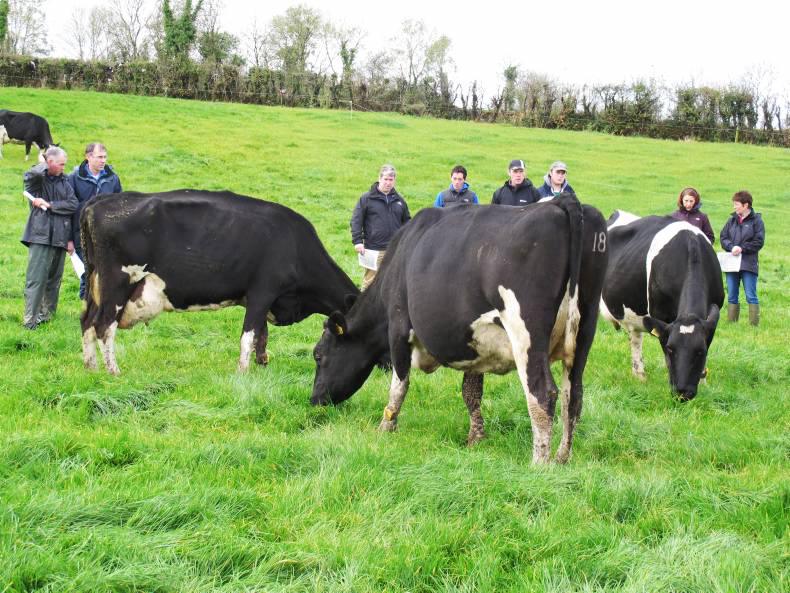Scoured calves:
I hear lots of stories and comments about scoured calves. On page 42, we feature one of our Dairylink farms in Co Down who had a bad run with Crypto over the last number of months. Working with his vet, the farmer got it under control and one of the key problems identified was a dirty calving area. On that farm, the policy now is to snatch the calf as quickly as possible from the calving area to minimise dung getting to the newborn calf while it flounders around trying to find its feet. The calf is then taken to a spotless individual pen with a dry lie and fed at least four litres of colostrum.
I had two queries this week for homemade electrolytes, so here is the formula again: 12g (one tablespoon) bread soda, 8g (half a tablespoon) low salt and 40g (two to three tablespoons) of glucose in two litres of warm water. The more small feeds at intervals during the day you can do the better. Talking to a vet from Belgium last week in Northern Ireland, he said for a scour such as Crypto, you need to keep energy levels in the calf high, so it is very important to keep the sick calf on milk in addition to the electrolytes.
Get calves out:
I know the weather is very mixed but calves that are six to eight weeks old will take up a lot of space in sheds. Can you look at trying to move some of them out to another loose shed? Can you make up something temporary like Sean O’Donnell has done (pages 40 and 41) with woodchip and some form of shelter? Sickness will build up over time in sheds simply due to higher numbers and a lack of air space. Ideally, you don’t want to be putting newborn calves into an area where the February calves have been reared. The newborn calves will be susceptible to disease, so instead of moving the older calves, aim to have the newborn calves in the fresh area.
Storing milk:
I talked to Noel Lynch representing In Form Nutrition this week about products available for storing milk. He said for long-term storage, the product they supply co-ops with is called Stor Milk. He suggested that this will preserve milk for up to four weeks. The product is a blend of food grade organic acids which will drop the pH of the milk to 4.6. It means the milk can be stored without refrigeration for up to four weeks.
Farmers simply dissolve a small amount and add this to the container of milk. The milk will thicken slightly but, according to Noel, it might be necessary to feed calves a mix 50/50 of untreated milk to get calves used to the treated milk for the first day. Noel said that most co-ops stock the product but, if not in stock, it will be in store within 24 hours. The recommended retail price is €95 per bucket and that allows you treat 1,000 litres so, effectively, you are paying 9c to 10c/litre instead of the 28c/litre superlevy fine.
There are other short-term products on the market but these are milder acidifiers for short-term storage of milk (up to three days) rather than up to four weeks storage.






 This is a subscriber-only article
This is a subscriber-only article










SHARING OPTIONS: